The Central Bank identifies 3 solutions to address the debt issue
 The Central Bank of Iraq identified three solutions to address the country’s debt problem. While noting that a large part of the internal debt could be addressed through joint understandings, it stressed the need to diversify non-oil revenues and increase investments, asserting that these approaches would transform the economy from a rentier economy to a diversified and productive one.
The Central Bank of Iraq identified three solutions to address the country’s debt problem. While noting that a large part of the internal debt could be addressed through joint understandings, it stressed the need to diversify non-oil revenues and increase investments, asserting that these approaches would transform the economy from a rentier economy to a diversified and productive one.
Earlier, a number of economic experts downplayed the risks of Iraq’s internal and external public debt, stressing that its ratio is still within the safe international standard range, indicating that the strength of the foreign currency reserves has contributed to the stability of Iraq’s financial situation.
Amid this, the Prime Minister’s financial advisor, Dr. Mazhar Muhammad Saleh, stated in a statement to Al-Sabah last week that “only $3 billion remains of the Paris Club debt, and it will be settled by 2028, and that 47% of the internal debt remains within the investment portfolio of the Central Bank of Iraq, and it is covered as cash liquidity or cash liabilities at a rate of more than 100% in foreign currency, thanks to the strength of Iraq’s foreign reserves.”
The official spokesperson for the Central Bank, Alaa Al-Fahd, explained to Al-Sabah newspaper that “all countries, including the United States of America, have internal and external debts,” indicating that debt is not considered negative for the economy if it is directed towards investment spending, because it generates
For additional entry.
Al-Fahd continued, “The debts in Iraq are to cover the operational budget deficit, meaning they are directed towards consumption, and therefore they are a future constraint on debt repayment.”
And its installments and interest.”
Al-Fahd identified three ways to address the country’s debt, most notably diversifying non-oil revenues, increasing investments, and partnering with the private sector, which could reduce dependence on oil, while acknowledging the difficulty of achieving the latter option in a short period of time.
Al-Fahd explained that the external debt amounts to $13 billion, while the internal debt amounts to 91 trillion dinars, noting that a large part of it can be dealt with because the banks are government-owned and state-owned, ruling out that these debts pose any danger to the economic reality, but continuing to rely on debt constitutes a warning bell, according to his description.
For his part, Dr. Ahmed Al-Hathal, Professor of Economics at Al-Mustansiriya University, said that the problem does not lie in the size of the debt as much as it lies in the way it is financed.
Al-Hathal added to Al-Sabah that “financing the deficit through the monetary institution by discounting bonds and financing current spending is the most dangerous path because it leads to unproductive monetary expansion that raises inflation and puts pressure on the exchange rate, and it also weakens the balance sheet of the central bank after it has come to own a large part of the internal debt, which is a worrying situation in any economy.”
He explained that the danger lies in the rentier nature of the economy, with inflated operating spending, stagnant non-oil revenues, and the inability of productive sectors to generate added value. This makes domestic borrowing for consumption, rather than investment, a future burden, because the state will pay off the debt burden by putting pressure on the limited tax capacity of the national taxpaying power, while the risks move from banks to public finances and then directly to the currency.
Al-Hathal explained that the accumulation of non-tradable bonds limits the ability of the monetary policymaker to manage liquidity and increases the fragility of the financial position, while inflationary financing leads to greater pressure on foreign reserves and depletes stabilization tools, making the currency vulnerable to decline with any oil shock.
He pointed out that talking about diversifying revenues and increasing investment remains logical in principle, but it does not address the real problem of continuing to finance the deficit in a way that generates inflation, increases monetary expansion, and weakens the ability to stabilize the currency, at a time when obligations are rising year after year without real structural reform.
Alsabaah.iq

 Al-Rasheed Bank announced today, Monday, the relaunch of its electronic loan service through the credit card with a maximum limit of 15 million dinars.
Al-Rasheed Bank announced today, Monday, the relaunch of its electronic loan service through the credit card with a maximum limit of 15 million dinars.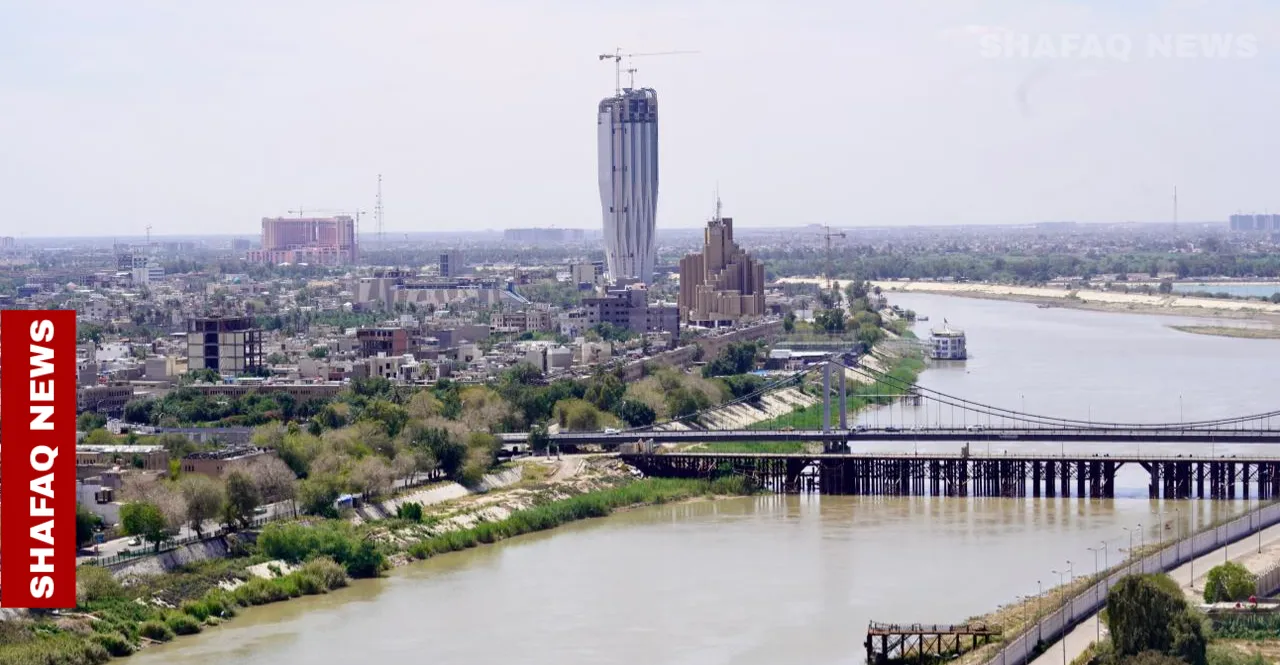 The Central Bank of Iraq confirmed on Monday that there is no intention to change the exchange rate of the Iraqi dinar against the US dollar, stressing its continued support for the stability of the exchange rate, and indicating that statements related to changing it aim to confuse the market, stir up speculation and affect the stability of the national economy.
The Central Bank of Iraq confirmed on Monday that there is no intention to change the exchange rate of the Iraqi dinar against the US dollar, stressing its continued support for the stability of the exchange rate, and indicating that statements related to changing it aim to confuse the market, stir up speculation and affect the stability of the national economy.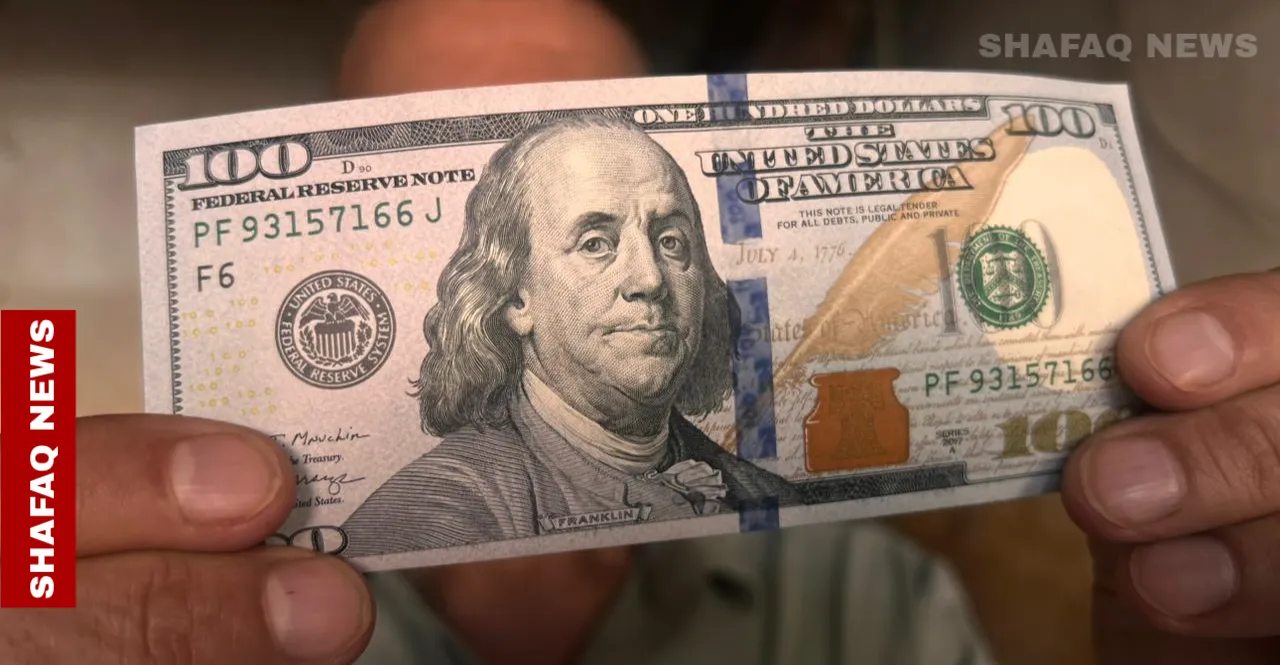 The exchange rate of the US dollar in Iraq has been under renewed pressure recently, amid widespread economic debate about the reasons for the rise and its impact on the general budget and the local economy. Experts have differing views on the nature of government measures and their results, with a general agreement on the need for a comprehensive package of reforms instead of relying on a single tool.
The exchange rate of the US dollar in Iraq has been under renewed pressure recently, amid widespread economic debate about the reasons for the rise and its impact on the general budget and the local economy. Experts have differing views on the nature of government measures and their results, with a general agreement on the need for a comprehensive package of reforms instead of relying on a single tool.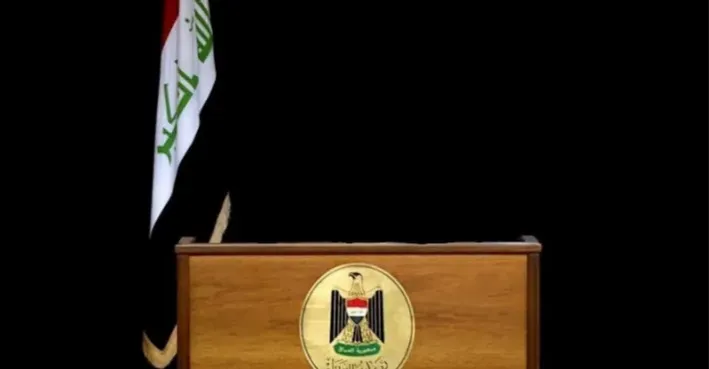 An informed source revealed on Thursday the three most prominent candidates for the position of Prime Minister, while indicating that next week will witness movement among all political forces to name the three presidencies.
An informed source revealed on Thursday the three most prominent candidates for the position of Prime Minister, while indicating that next week will witness movement among all political forces to name the three presidencies.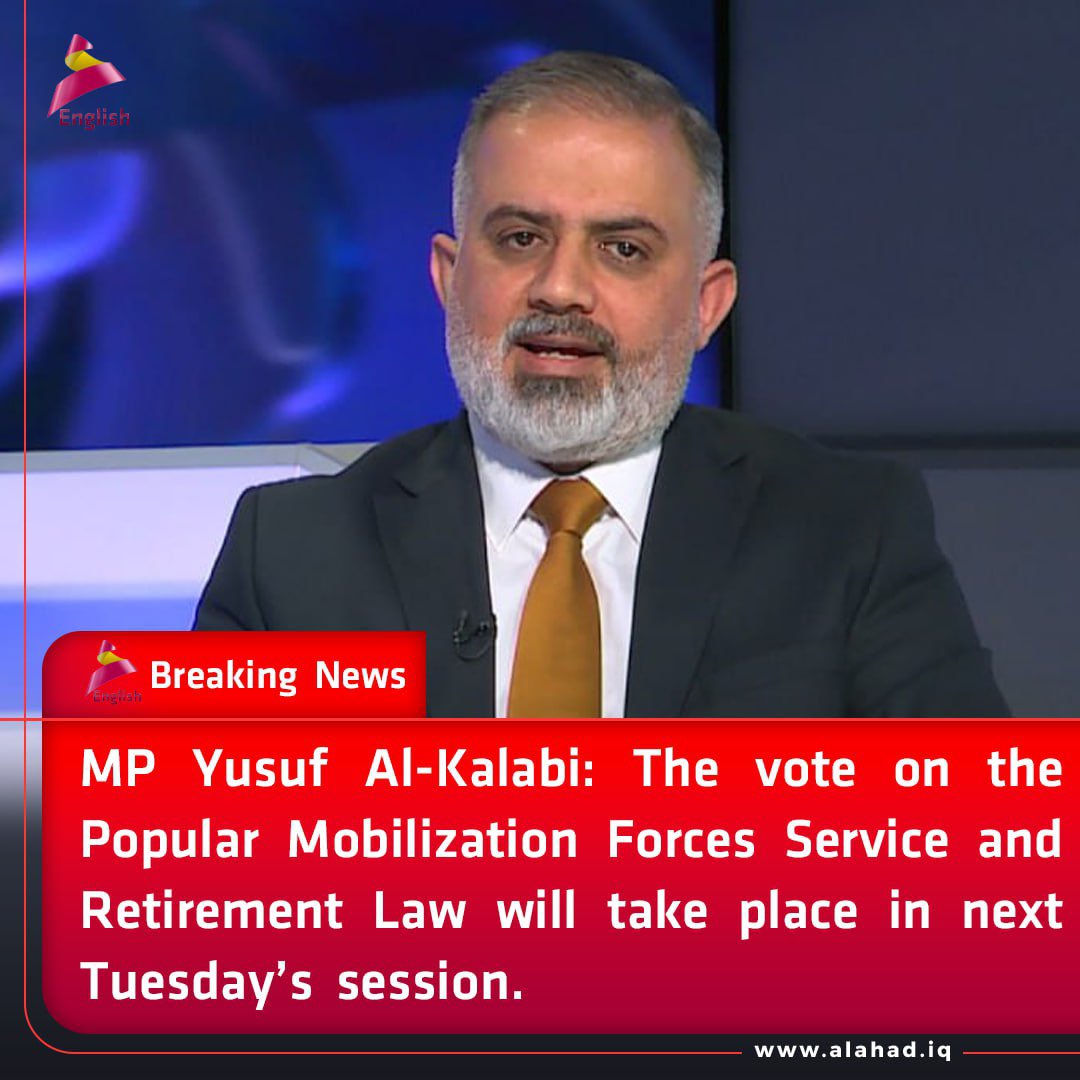 Former MP Youssef Al-Kalabi addressed an official letter today, Thursday, to the leaders of the Coordination Framework and the committee tasked with interviewing applicants for the position of Prime Minister, demanding that caretaker Prime Minister Mohammed Shia Al-Sudani be held accountable for a number of files that he said were “documented with evidence,” should the latter apply to occupy the position again.
Former MP Youssef Al-Kalabi addressed an official letter today, Thursday, to the leaders of the Coordination Framework and the committee tasked with interviewing applicants for the position of Prime Minister, demanding that caretaker Prime Minister Mohammed Shia Al-Sudani be held accountable for a number of files that he said were “documented with evidence,” should the latter apply to occupy the position again.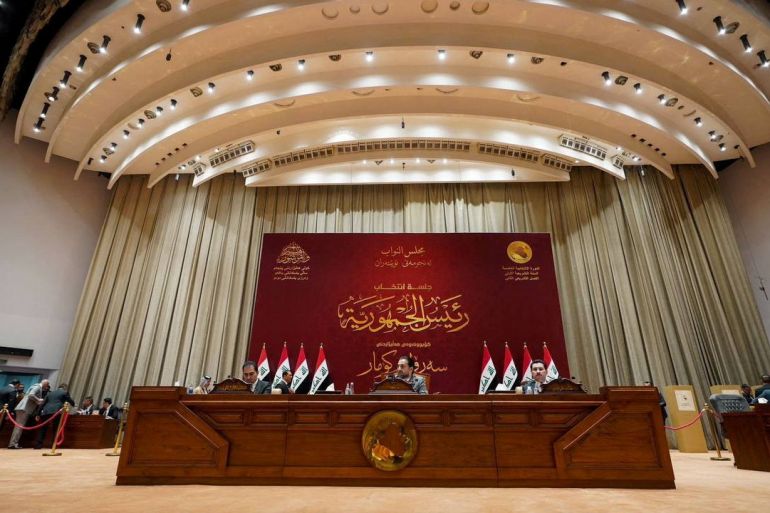 Former MP Ayoub Al-Rubaie set on Thursday the date for the start of official consultations regarding the formation of the next government, stressing that the coordination framework has prepared more than one special committee to accelerate the pace of the decision.
Former MP Ayoub Al-Rubaie set on Thursday the date for the start of official consultations regarding the formation of the next government, stressing that the coordination framework has prepared more than one special committee to accelerate the pace of the decision.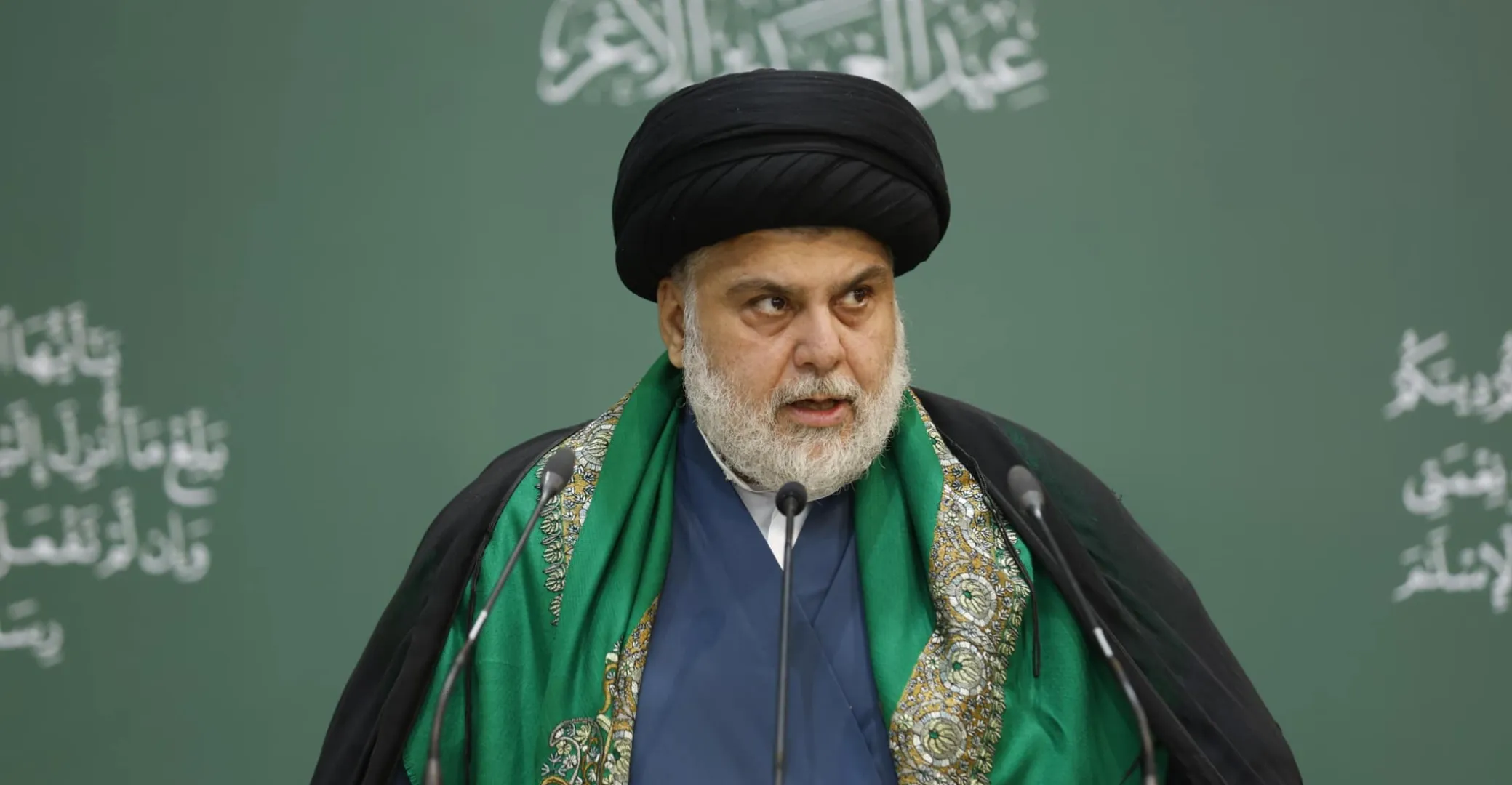 A prominent leader in the Shiite National Movement revealed on Thursday that the movement’s leader, Muqtada al-Sadr, refused to open any channels of dialogue with the Coordination Framework regarding the formation of the next Iraqi government.
A prominent leader in the Shiite National Movement revealed on Thursday that the movement’s leader, Muqtada al-Sadr, refused to open any channels of dialogue with the Coordination Framework regarding the formation of the next Iraqi government. Forbes magazine highlighted the broader picture of Iraq’s failure to secure electricity, attributing the cause to instability, bureaucracy, and political fragmentation.
Forbes magazine highlighted the broader picture of Iraq’s failure to secure electricity, attributing the cause to instability, bureaucracy, and political fragmentation.